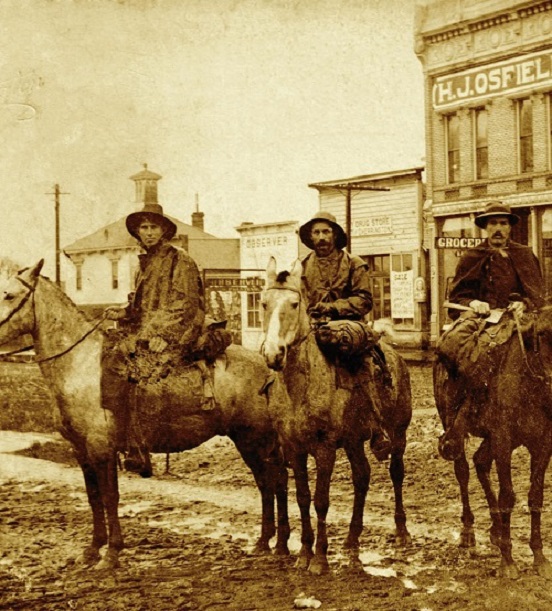
Court street: jail, Observer building, drug store, H.J. Osfield groceries. IOOF and Dry goods store shown in the background.
The only people living along the banks of the LaCreole River before 1842 were Native Americans and a few itinerant French Canadian fur trappers who, according to local lore, bestowed its name. Wagon trains first arrived in 1843 with these pioneers settling along the LaCreole River’s banks. The community of Cynthian grew on the north side of the LaCreole River, the area of north Dallas today. The LaCreole River evolved into the Rickreall, and Cynthian was renamed Dallas when it relocated to the south banks of the river. Dallas, the county seat of Polk County, is rich both in its history and its heritage, with many of the old buildings and early homes still in use. Numerous descendants of those original 1843 and 1844 pioneer families continue to call modern Dallas home.
Suzie Hunter-Rohde grew up in Dallas, as did her father, Delbert Hunter. The many stories he recounted influenced Rohde’s love for local history, continuing today through her work at the Polk County Museum. Working together with coauthor Debra Lea Meaghers, a longtime area resident and writer, they weave a visual story of this remarkably resilient community using images from the museum, the author’s collection, and other private sources.
This photo was chosen because no one seemed to know who these men were, and I was hoping someone would recognize it and give me the information. Earl Richardson purchased the Observer, the local paper, in 1924. Sometime after, he published the above picture and offered a free month's subscription to the Observer to anyone who could identify these men. They have remained unidentified.